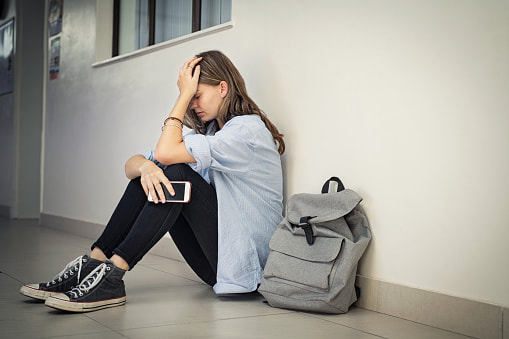|
Author: Cate Cabri Connections with others have a major impact on our happiness as well as our well-being. One way that many people seek to strengthen these connections with others is through the use of social media. Social media has become so commonly used in our society as a main method of communication for many people, sometimes even replacing face-to-face interactions. Although there are some positive aspects of using social media, there are also major concerns, including raising levels of anxiety and depression. If used in an unhealthy way, social media can take a major toll on people's mental health. A few warning signs to look out for that social media could be negatively affecting your mental health include:
However, if used in a healthy way, there are many positive aspects of social media.
Research on the impacts of social media on anxiety has shown that anxious people tend to rely on social media as a means of escaping from what they are worried about. However, once on social media, new stressors become an issue that fuels the initial anxiety that the person was already experiencing. Individuals with Generalized Anxiety Disorder, for example, often compare themselves negatively with others on social media, which leads to a higher level of anxiety than they were initially experiencing. Social media can be an addictive platform. Research has shown that posting a photo and getting lots of likes and positive, validating comments can be addictive. When you receive positive feedback on a post, this triggers the release of dopamine in the brain (a “reward” chemical). This can cause people to want to continue posting to get more of this validation. This is something to keep in mind when using social media - what is your intention and why are you choosing to post? There is not necessarily one correct intention with posting on social media but it is something to consider, as using social media for the wrong reasons (like for the purpose of only using it to try to get validation or trying to fit in with others) can lead to an unhealthy relationship with social media and can contribute to feelings of anxiety and depression. Overall, there are positive aspects to social media when used in a healthy way, and it is important to consider your own social media use and how it is affecting your life. Check in with yourself on your social media use and consider any adjustments that you could make to ensure that social media is affecting your life in a positive way. Sources: Social Media and Mental Health The Impact of Social Media on Youth Mental Health Anxiety and Social Media Use Does Social Media Cause Depression?  About the Author: Cate is a student at Loyola University Chicago where she is majoring in Psychology with a minor in Psychology of Crime and Justice. She plans on attending graduate school to become a clinical social worker. In her free time, she enjoys hiking and spending time with family and friends.
0 Comments
Leave a Reply. |

 RSS Feed
RSS Feed